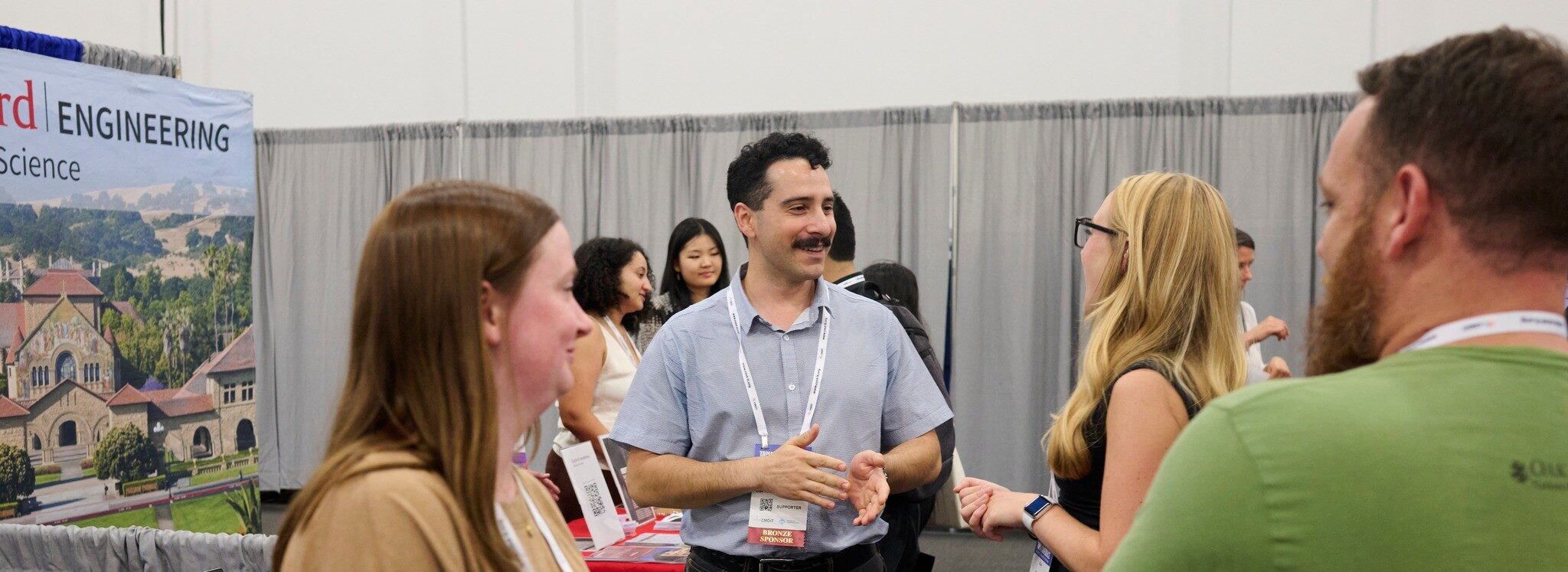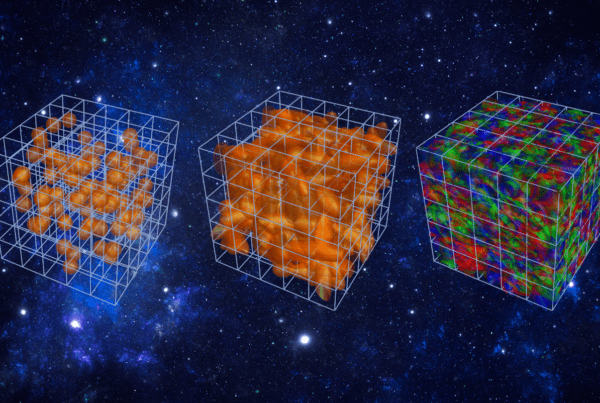The National Center for Computational Sciences, located at the Department of Energy’s Oak Ridge National Laboratory, made a strong showing at computing conferences this fall. Staff from across the center participated in numerous workshops and invited speaking engagements.
In September and October, staff from the NCCS and the Oak Ridge Leadership Computing Facility were featured prominently at the Tapia Conference in San Diego, California, and at the Society of Industrial and Applied Mathematics Conference on Mathematics of Data Science in Atlanta, Georgia.
“Our involvement in these computing conferences is a testament to our dedication and commitment to broadening participation in computing and advancing science and technology,” said Verónica Melesse Vergara, the section head of HPC Operations for the NCCS. “Each presentation, workshop and conversation led by OLCF staff brings new ideas and inspiration to the field.”
GPU-acceleration, cybersecurity crash course
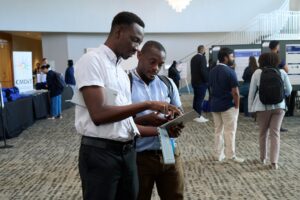
Elijah MacCarthy (left) and NCCS computing staff discuss career opportunities at the Tapia Conference career fair in San Diego, California. Credit: ORNL, U.S. Dept of Energy
Named in honor of mathematician Richard Tapia, the Tapia Celebration for Diversity in Computing Conference brings together professionals from all backgrounds and expertise.
HPC engineers Elijah MacCarthy, William Castillo and Togo Odbadrakh from the Systems Acceptance and User Environment group led a workshop on GPU-accelerated computing. The workshop used OpenACC, OpenMP, HIP and CUDA to introduce the basics of GPU programming. Participants were able to choose self-guided, hands-on exercises using Frontier, the OLCF’s exascale-class supercomputer.
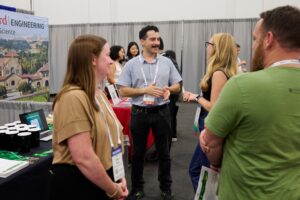
ORNL computing staff members Hector Suarez (middle) and William Castillo (right) talk HPC at the Tapia Conference career fair in San Diego, California. Credit: ORNL, U.S. Dept of Energy
HPC Cybersecurity Engineer Hector Suarez, from the HPC Cybersecurity and Information Engineering group, also helped with the GPU workshop and co-led a session titled “Cyber Sleuths: Making Sense Out of Chaos Fusing Cyber Data and Intelligence Information.” This interactive workshop, which used a hands-on simulation that allowed participants to investigate a data breach and develop strategies to identify possible perpetrators, offered a glimpse into the day-to-day duties of a cybersecurity analyst.
Communicating and career prep
The SIAM Conference on Mathematics of Data Science specifically caters to students and early-career professionals and provides a unique opportunity for hands-on learning. This year’s theme focused on the interaction of data science and society, and special attention was given to issues related to privacy, interpretability, explainability, ethics and policies.
HPC engineers Suzanne Parete-Koon and Ryan Landfield and project specialist MacKenzie Boyd led a two-part “Hands-on HPC” workshop and a separate professional development session on communication skills — both were designed to strengthen participants’ technical expertise and support their academic and professional growth.
“These workshops are so important for introducing young professionals to the foundations of HPC and AI and getting them familiar with the systems and the people that work in the field,” said Parete-Koon. “Advanced computing is so broad with so many applications. It can be hard to know where you fit in at first. A hands-on overview of advanced computing is a significant step toward overcoming that hurdle.”
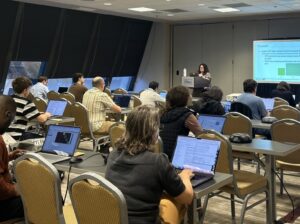
HPC engineer Suzanne Parete-Koon leads “Hands-on HPC” workshop presentation at the 2024 SIAM Conference on Mathematics of Data Science in Atlanta, Georgia. Credit: ORNL, U.S. Dept of Energy
Parete-Koon was recently promoted to lead the Workforce Development Initiative for ORNL’s Computing and Computational Sciences Directorate. In her new role, she will spearhead efforts to cultivate and retain talent and develop curricula for workforce outreach in HPC, AI and quantum computing.
“Equally important is being able to communicate your work in a memorable way, as it helps build connections that can open doors for both new opportunities and meaningful scientific contributions,” Parete-Koon added.
HPC workshop participants were introduced to key HPC concepts, including programming environments, parallel computing and machine learning frameworks. Participants were provided with an interactive series of challenging scenarios that involved using parallel programming to create visualizations and manage large datasets. A single compute node of Frontier 65 was used for the scenarios, allowing participants to gain firsthand experience with a leadership-class system.
In collaboration with the Sustainable Horizons Institute, OLCF staff provided personalized coaching to help students prepare for poster sessions and lightning talks by improving their ability to deliver clear and concise presentations on complicated research topics.
“This was a fantastic opportunity for both the students and the staff to connect with the next generation of HPC experts,” Parete-Koon said. “It was inspiring to see how engaged and eager everyone was to learn, and it was truly rewarding to support each other’s goals.”
The OLCF is a DOE Office of Science user facility.
UT-Battelle manages ORNL for DOE’s Office of Science, the single largest supporter of basic research in the physical sciences in the United States. DOE’s Office of Science is working to address some of the most pressing challenges of our time. For more information, visit energy.gov/science.


